Black Lives Matter
How London protests are continuing months after the initial outcry
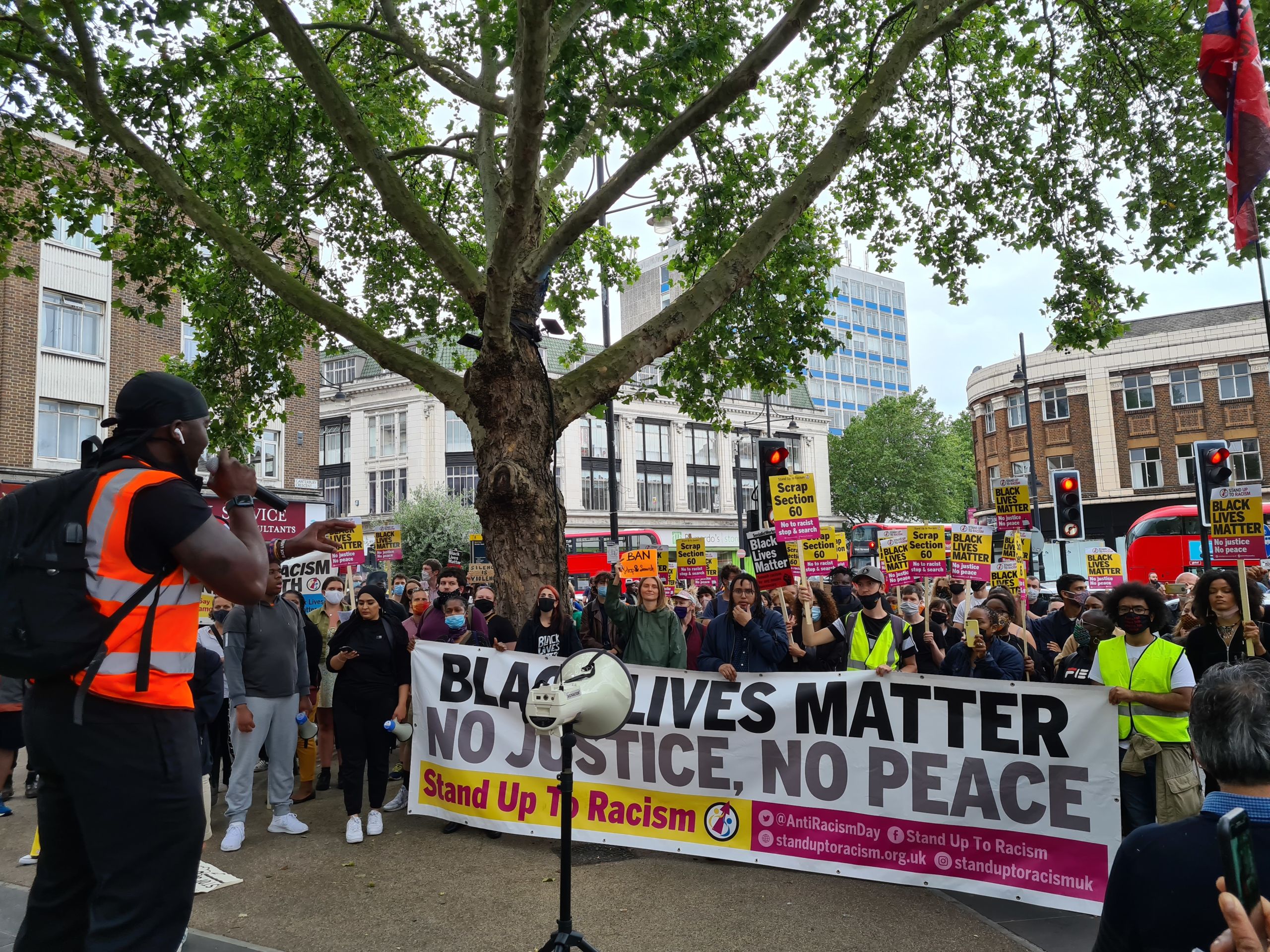
"This is a movement, not a moment"
These were the words repeated to me at many different events in London over the last few weeks.
Even though #BlackLivesMatter may not be trending on a daily basis anymore, the demonstrations are still continuing and will rumble on throughout the summer.
In order to get a sense for how the movement has been progressing, I attended two marches in Brixton.
And one quickly learns that one march is very different from the next.
On the 25th of July, Stand Up to Racism, held their demonstration.
Hundreds of people gathered in Windrush Square in Brixton on a cloudy Saturday.
We heard from local activists, MPs and councillors, and even some spoken word performers who successfully kept the energy alive.
I talked to Leontia Hogan, an organiser of Black Lives Matter Wandsworth, and she highlighted that their community led spirit was one of their biggest strengths within these groups.
"It is local people who have been marching for 50 years. There are a lot of little groups but this is what everyone wants
But this flexibility does not come without its challenges.
Many critics of the Black Lives Matter movements have stated that there has not been enough direction. They often focus on the headlines about destroyed statues instead of the movement's ambitions.
But this need for direction hasn't gone unnoticed. Ms Hogan said that the future of these movements will rely on collaboration, so that all groups are working in the same direction.
The Brixton demonstration showed a clear direction, as they had a very tangible goal that they wanted to achieve. And that was to scrap Section 60 of the Criminal Justice & Public Order Act.
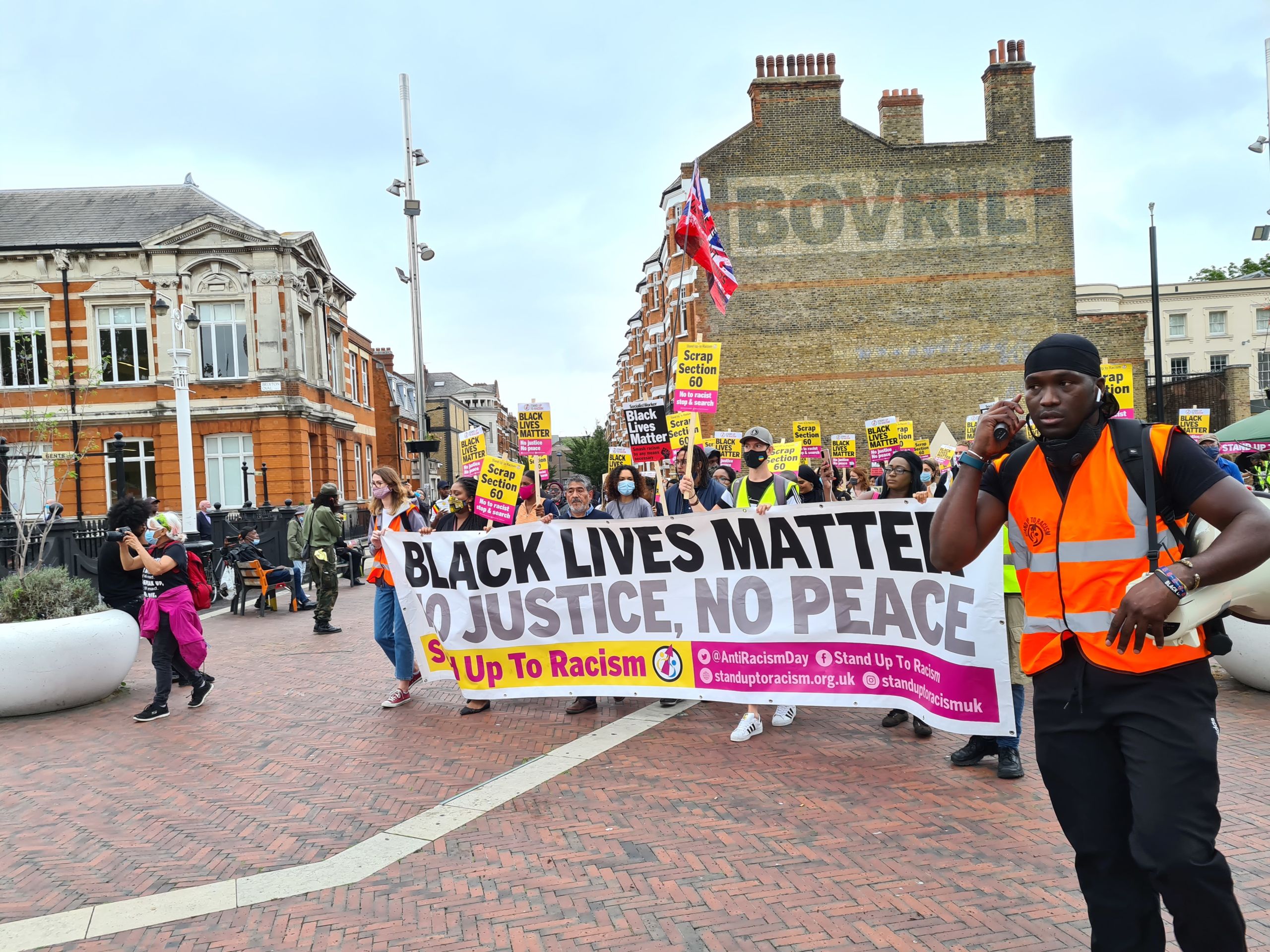
Section 60 of the Criminal Justice Act grants stop and search powers to the police without the need for suspicion.
Police are only supposed to authorise the use of Section 60 when there has been serious violence or where there is a risk it may occur in a particular area.
During London's lockdown, the Met police reported that they carried out 43,869 instances of stop and search in May 2020.
Compare this number to the year before, when police only carried out 21,593 instances of stop and search.
Out of this year's figure 15,823 of the people stopped were white, and 17,268 were black.
Statistics such as these lead many black people to feel as though the UK is a racist country.
You are often reminded at these demonstrations that just because fewer black people die in the UK compared to the USA, it does not make the UK innocent.
The Met police hold the position that stop and search procedures are for the safety of the public that they represent, and in their eyes Section 60 is a necessary precaution.
Looking around it was clear that this affected so many people.
Bell Ribeiro-Addy, the MP for Streatham was able to sum up the feeling that so many black people have towards the police.
"What we are finding is that black people are over-policed as citizens, and under policed as victims."
I considered myself lucky that this law had to be explained to me, whilst so many others have been targeted by it.
In order to understand the strong feelings behind this protest, I spoke with a local mother, Lenora Davis. Her 17-year-old son was one of the many young black men searched by the police.
He was stopped and searched by police after they felt he fit the description of a boy who was reported to have been riding a stolen moped in the area.
At one point, the officer asked the young boy to take his hands out of his pockets. He complied, but tensions rose very quickly, and within seconds the young man was on the ground in handcuffs.
Thankfully, the boy was relatively unharmed, but Ms Davis said how he was affected by the experience "He doesn't want to come out of the house. He is very shaken up by it."
These experiences don't do well to forge healthy relationships with the police, they breed mistrust.
Ms Davis said that demonstrations like these help, and has provided her with the courage she needed. After filing a complaint with the police she said:
"If you don't stand up and speak then this continues to happen."
Meeting people who have also been affected by these troubling experiences was clearly important to her, instead of suffering in silence.
This was the goal for the demonstration in Brixton, to repeal Section 60.

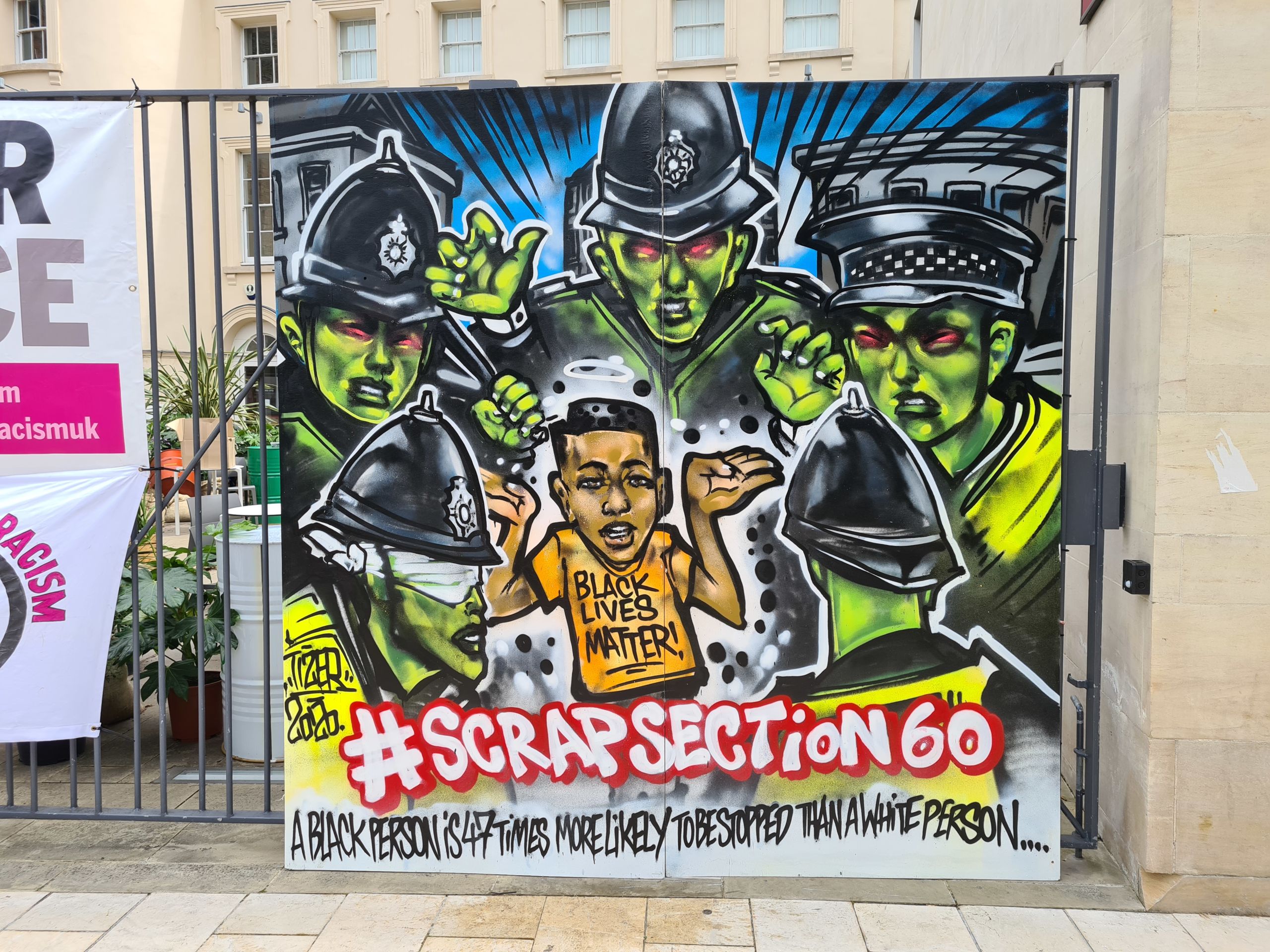
After many guest speakers, the crowd joined together, and they began marching towards Brixton Police Station.
Outside the station there were more passionate speakers, as officers peeked out of their curtains as the commotion proved difficult to ignore.
The next destination was Walworth police station, a 2.5 mile march to the north. This would ensure that the presence of the demonstration was felt, and judging by the number of onlookers, it certainly turned some heads.
They follow their route through Lambeth, north towards Elephant and Castle.
The march began in high spirits, as a marching drum band led the way towards their destination.
You glanced up at the windows to see curtains opening in curiosity. As many people young and old leaned out their window for a better look.
As the weather took a turn for the worse, the pace slowed.
The march started with a huge surge of optimism for social change, but as the rain started and the heavens opened, you could see faces change from a joyful optimism to steely determination.
The Brixton march ended in Elephant and Castle, here organisers reminded every marcher who they continue to fight for.
Mark Duggan - A 29-year-old black man, shot and killed by police in August 2011. Police claim that Mr Duggan was in possession of a firearm, however this is still disputed by human rights groups. His death sparked the largest riots in modern English history.
Derek Bennett - 29, a psychiatric patient was killed by police in July 2001, when he was brandishing a novelty cigarette lighter which police thought to be a real weapon.
And there were other names mentioned throughout the day that caused people to continue to march. Stephen Lawrence was the victim of a racist knife crime attack in 1993. It took 18 years for his killers to be convicted.
And Paulette Wilson, who passed away this month at the age of 64. Ms Wilson, part of the Windrush generation and campaigner, faced deportation to Jamaica after being described as an illegal immigrant, despite living and working in Britain for 50 years. For many Ms Wilson is an example of how Britain still has to learn from its history and role as coloniser.
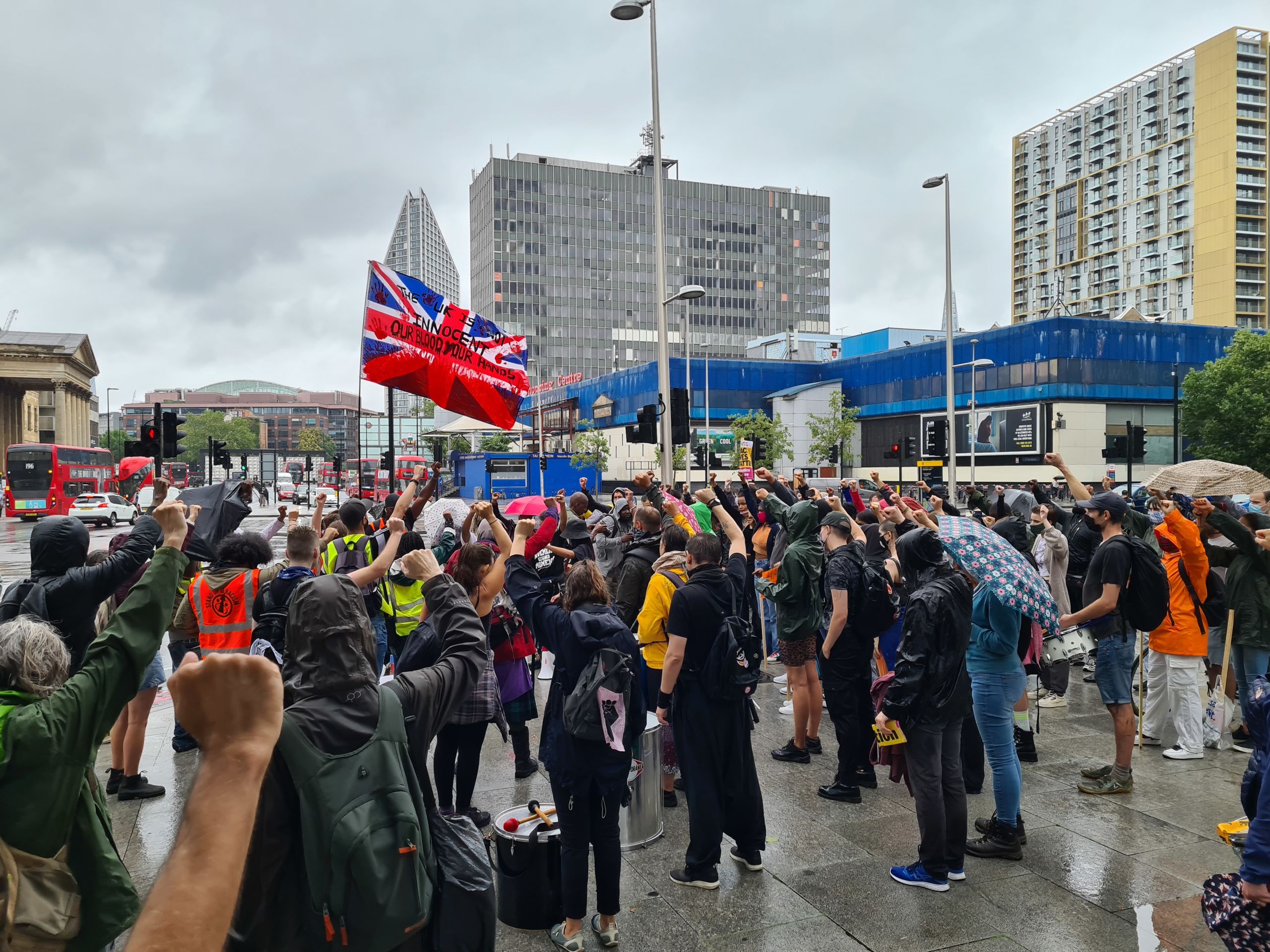
I spoke to Councillor Maurice Mcleod of Battersea at the Stand Up to Racism protest, about what it meant for his community in Battersea.
Cllr Mcleod has been vocal across this movement, speaking at a number of other socially distanced demonstrations such as in Battersea Park or Tooting Common.
"I think there will be a legacy to this.
You don't get to the end and you solve racism.
Each time you nudge the dial a little bit further so that the future battles are a little bit easier."
However whilst there is a long way to go in some parts of the city, Mr Mcleod applauded the actions of his local police force in Wandsworth.
Cllr Mcleod said that for activists it is important to find an issue that you care about, and work on that, whether in your own workplace, or neighbourhood. Such as the criminal justice system, the impact of Covid-19 on the BAME community, or decolonising our education system.
There is plenty of issues to focus you attention on, and Cllr Mcleod believes that that is a great way to see real developments in your community.
"It takes a village to raise a child."
African proverb
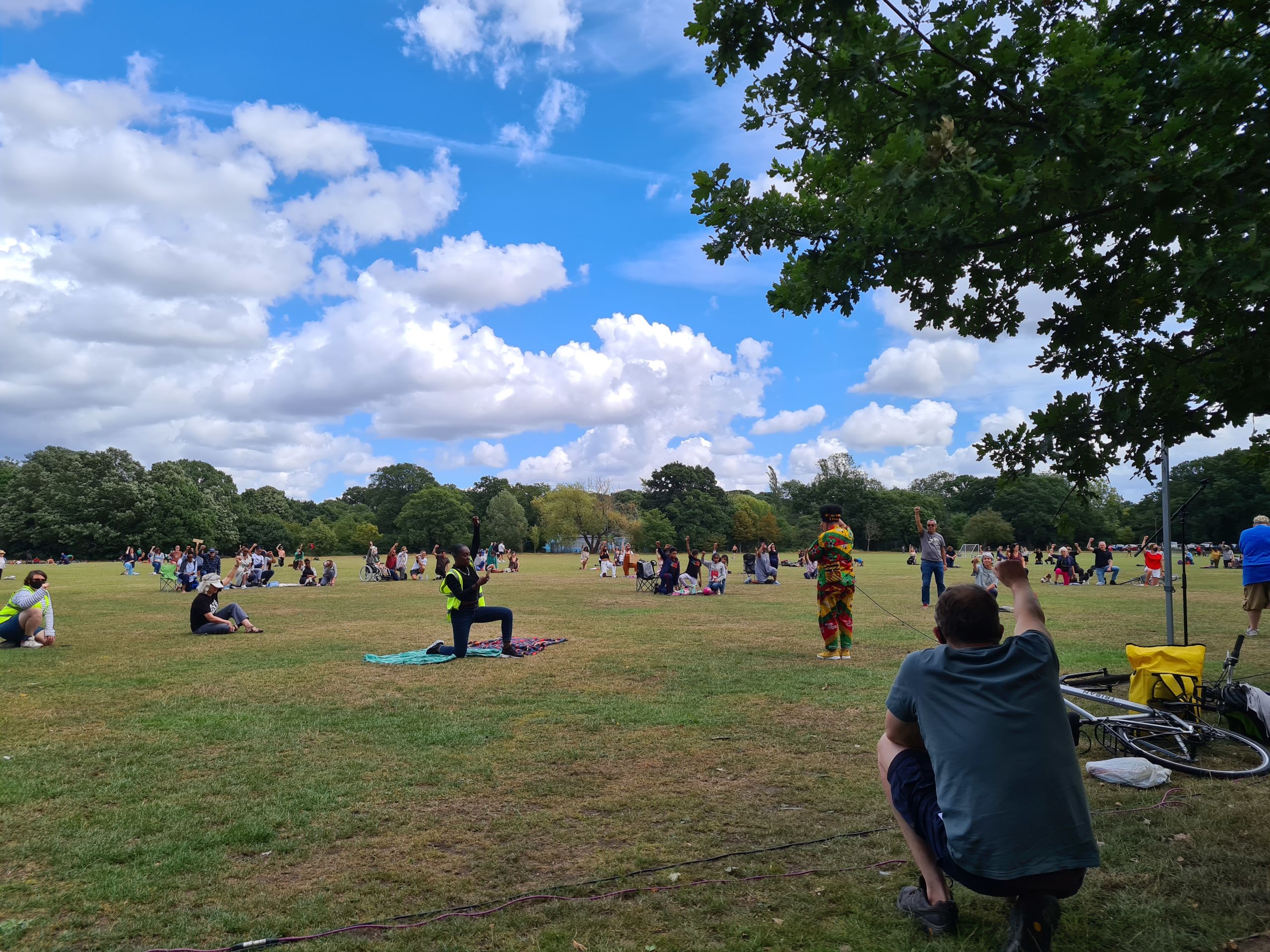
So a mutually respective relationship could be possible between the police and the black population of the UK.
The following week Brixton saw another demonstration, which may not be as well known to the wider UK public.
The annual Reparations Rebellion run by the Stop The Maangamizi: We Charge Genocide/Ecocide Campaign and the Afrikan Emancipation Day Reparations March Committee brought Brixton to a halt as these groups demanded to be heard.
Normally the demonstration would march from Brixton to Westminster, but due to Covid-19 the decision was made to hold a lockdown if Brixton instead.
Held on African Emancipation Day, the march noted 186 years since the abolition of slavery on the 1st of August 1834.
However many of the speakers have said that the black community still have not received adequate reparations for the slave trade, whilst controversially slavers had been compensated.
Coordinator General of Stop The Maangamizi, Esther Stanford-Xosei explained the reason for their ongoing protests:
“We decided to organise the Afrikan Emancipation Day reparations groundings as a form of peaceful non-violent direct action because we are not being heard in our demand… that the UK government establish the all-party parliamentary commission of inquiry for truth & reparatory justice,”
During the day we heard from many different organisation. Such as Remember the 400, an organisation dedicated to continued education of the atrocities committed during the slave trade.
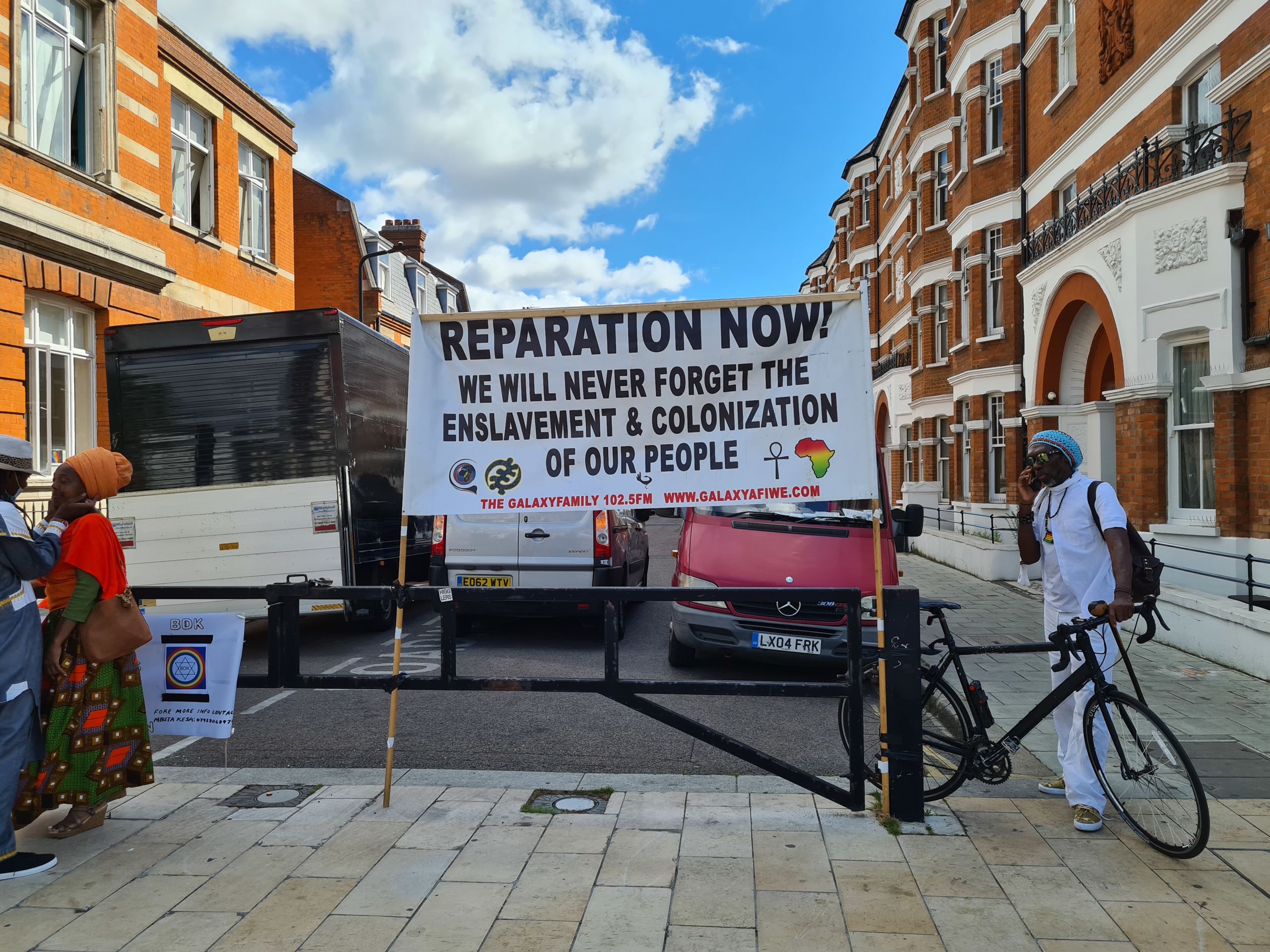

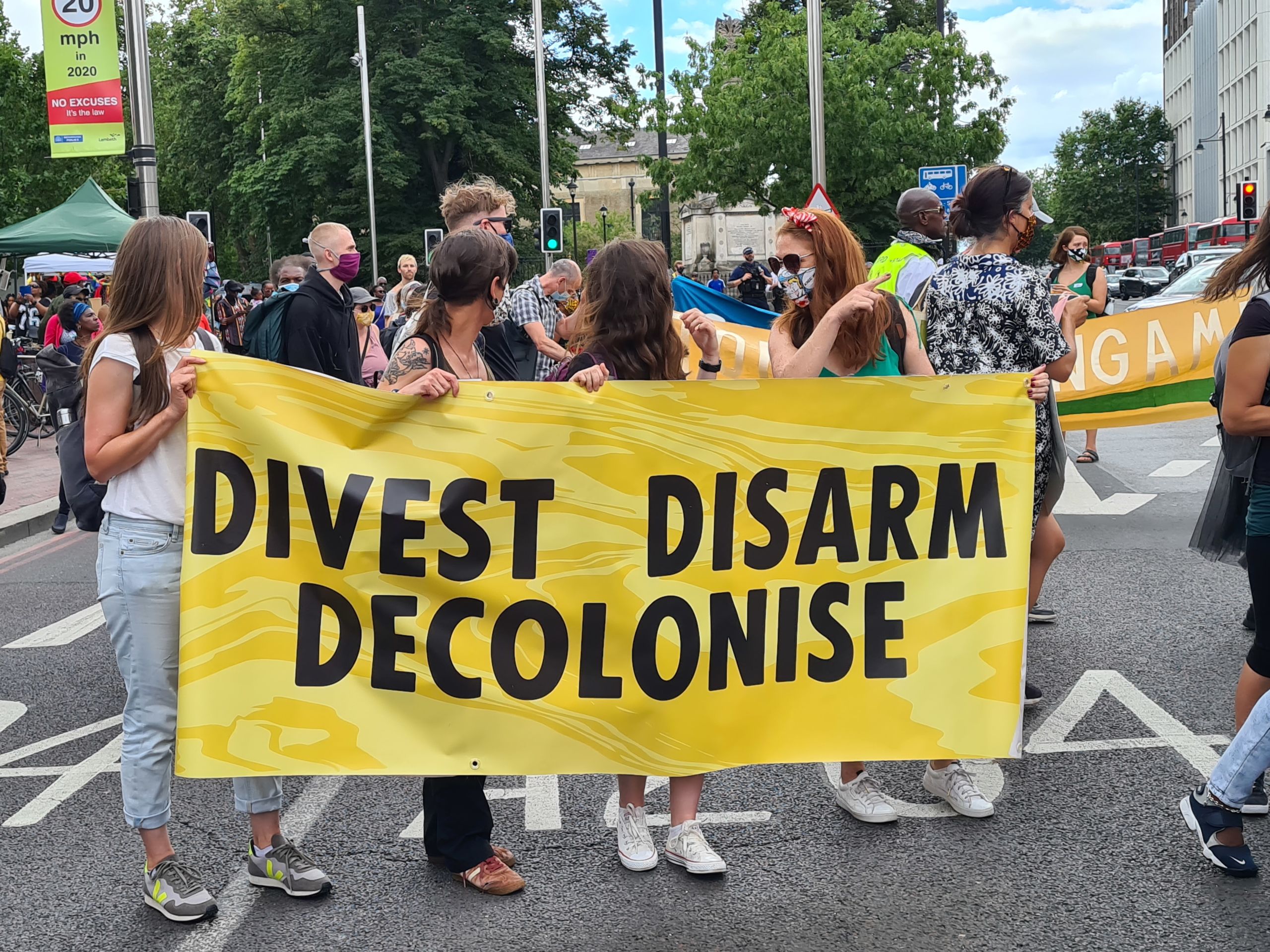
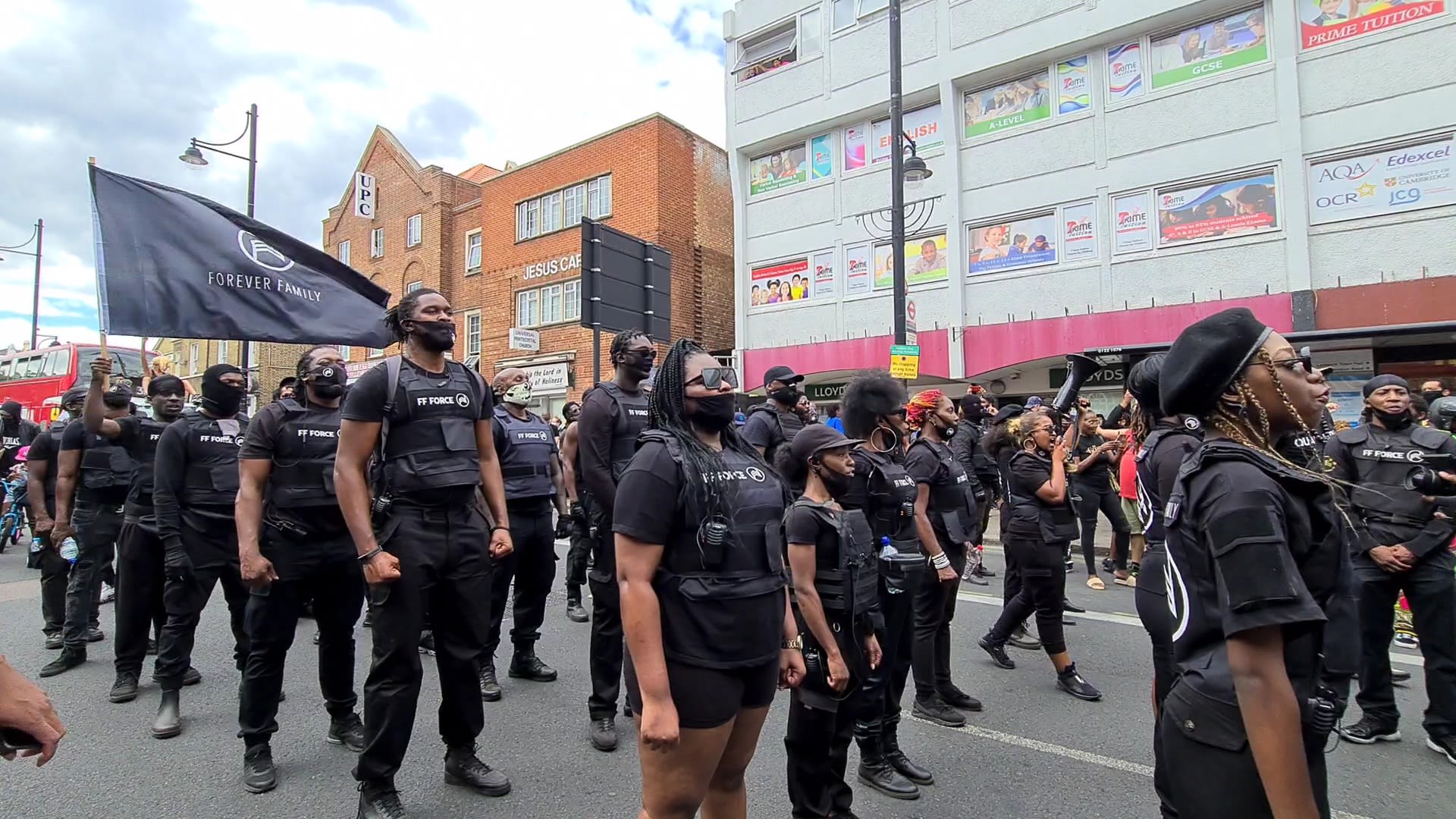
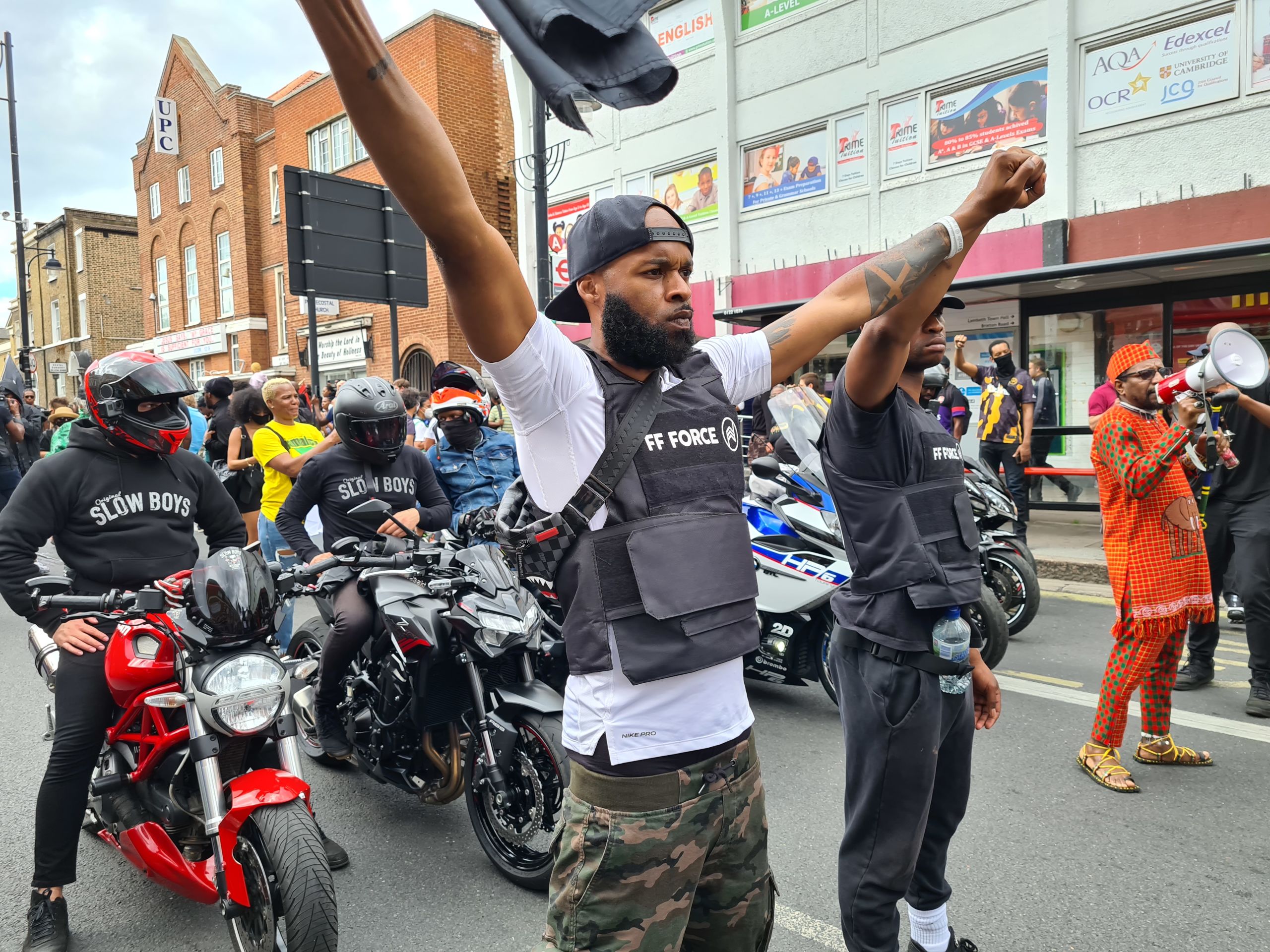
One group that was difficult to ignore was Forever Family, who conducted a march throughout the city centre that effectively brought the A23 to a standstill.
The group's uniform closely resembled that of the Black Panthers a political organisation prevalent across the USA in the 1960s.
They are an organisation who are "united in the battle against racism, inequality and injustice".
The group states that it's purpose is to "mobilise, organise and centralise commuinty initiatives to empower and support organisations with similar objectives".
This march caused problems for motorists and made extra work for the police, though the Met did thank Brixton protestors for a "largely peaceful" protest with only three arrests made.
However this did not stop comments from critics such as Nigel Farage, former leader of the Brexit Party, who said the marchers were “terrifying,” likening protesters to a “paramilitary-like force.”
Ms Stanford-Xosei responded by stating that Mr Farage's comments were "racist nonsense", "deceitful propaganda" and "an abysmal attempt to frighten away allies from supporting these Reparations Rebellion."
"We need monumental change. Not a change in monuments."
Councillor Maurice Macleod
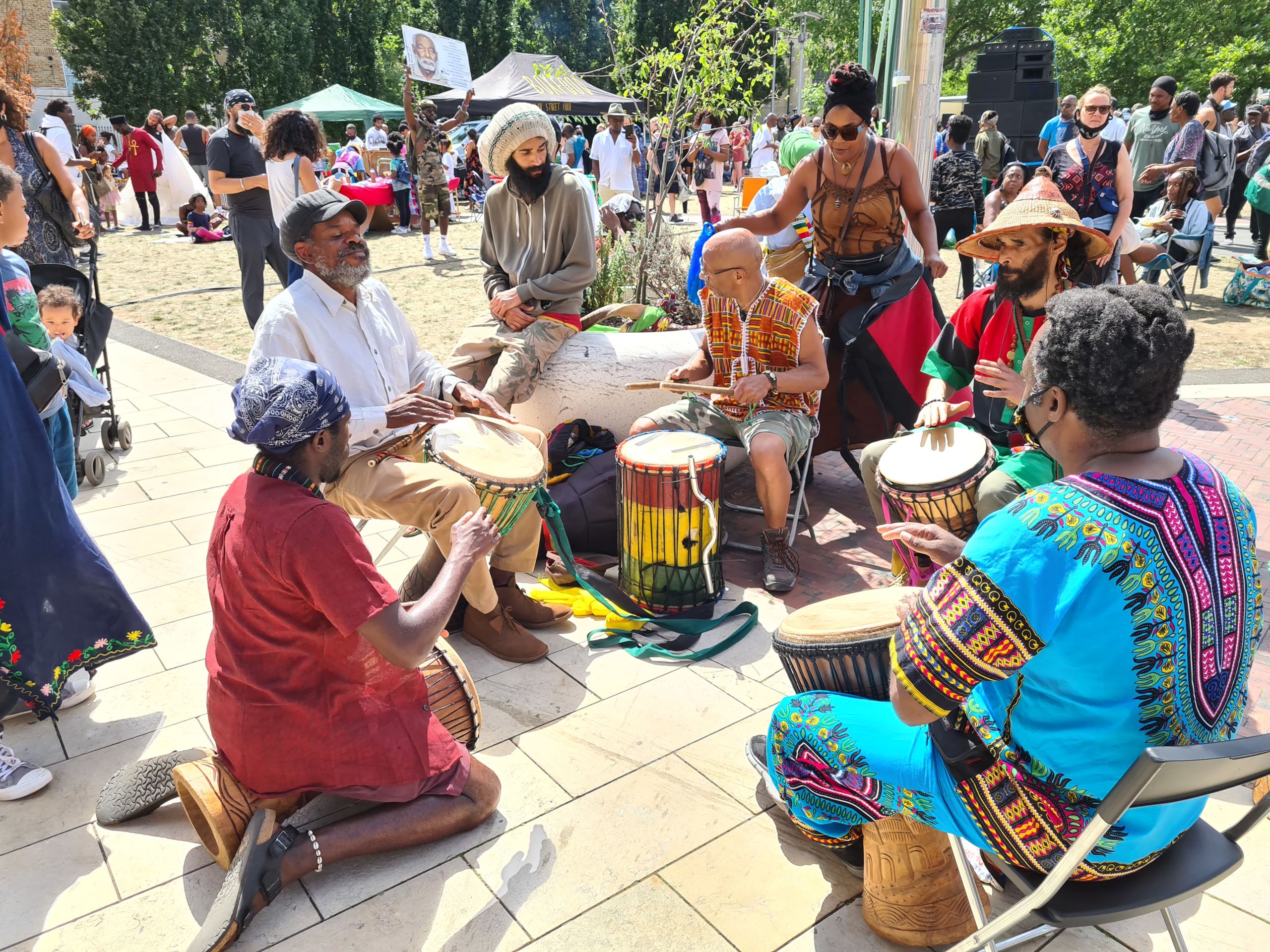
As we look towards the future, it's important to ask ourselves how will the Black Lives Matter movement progress. Remembering what Ms Hogan of Black Lives Matter Wandsworth said that collaboration and solidarity between these communities will be essential.
Whilst initial enthusiasm may have dampened as people and numbers might dwindle in the future, these marches show no sign of stopping.
On the 30th of August, Black Lives Matter will join with the Million People March, as protestors will march from Notting Hill to Hyde Park to stand against systemic racism.
The Black Lives Matter movement appears to have evolved from the visceral, emotional reaction to the killing of George Floyd into a reflective one. As many people are beginning to realise just what fighting racism can mean.
People new to campaigning have recognised that this isn't an issue that will be resolved in a matter of weeks or months. It will take determination, since we are unlikely to wake-up tomorrow in a world free of racism.
So if you are expecting demonstrations to wrap up soon, remember, this is a movement, not a moment.
